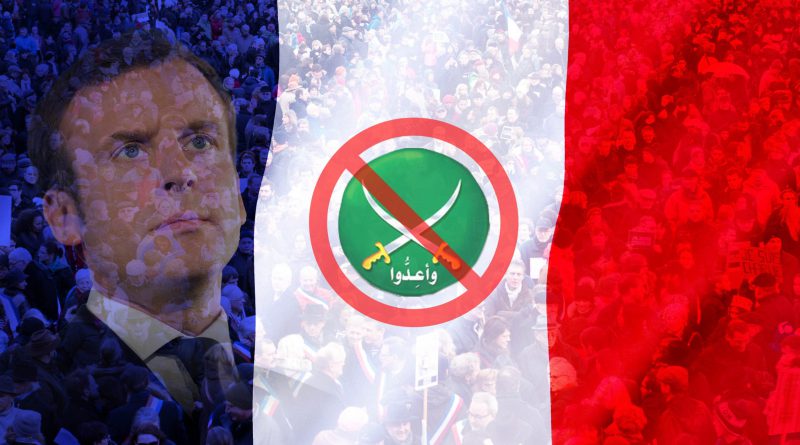France Uncovers Muslim Brotherhood’s Influence Campaign in EU Institutions
Paris — A confidential report by French authorities, according to Politico Europe, has pulled back the curtain on what officials say is a growing attempt by Muslim Brotherhood-linked organizations to quietly shape policy and influence the European Union’s democratic institutions. The findings have sent shockwaves through Brussels and stirred political debate in Paris.
Politico Europe, the European arm of the prominent U.S.-based political news outlet Politico, specializes in covering EU policy and governance from its Brussels headquarters, with bureaus in Berlin, Paris, Warsaw, and London. Their access to an early draft of this report brings crucial transparency to a sensitive matter unfolding in the heart of European democracy.
According to the report, certain Islamist groups—ideologically aligned with the Muslim Brotherhood—have launched well-organized lobbying efforts within the EU, particularly targeting Members of the European Parliament (MEPs). The aim, it says, is to promote a singular religious worldview that runs counter to France’s firm secularist traditions—laïcité—which guarantee both freedom of religion and freedom from religion.
One particularly controversial objective mentioned in the report was an effort to push Brussels toward criminalizing blasphemy—something seen as fundamentally incompatible with Western democratic values.
From Cairo to Brussels: A Quiet Evolution
The Muslim Brotherhood, born in Egypt over a century ago with the vision of establishing governance under Islamic law, has morphed over the decades. While officially banned in several countries—including Egypt, Saudi Arabia, and the UAE—it has continued to expand its ideological footprint in Europe via think tanks, youth groups, and religious networks.
The French intelligence-backed report claims that the Brotherhood leverages several pan-European entities to advance its goals, often under the pretext of defending Muslim civil rights and fighting Islamophobia. Among the named organizations are the Council of European Muslims (CEM) and the Forum of European Muslim Youth and Student Organisations (FEMYSO)—groups allegedly supported by foreign funding, notably from Qatar and Kuwait.
The report alleges that CEM hosts senior Brotherhood members and that FEMYSO operates as a “training structure” for grooming future Brotherhood operatives in Europe.
While the organizations deny any formal ties to the Brotherhood, the report cites interviews with Muslim leaders, academics, and intelligence officials to support its conclusions. The investigation echoes the findings of a similar UK government review published nearly a decade ago that raised alarms about the Brotherhood’s soft-power strategies.
Defending Secularism, Defending the Republic
The report’s revelations come amid an intensifying French campaign to reinforce secular values. President Emmanuel Macron’s administration has consistently taken a tough stance against radical Islamist influence in public institutions. Earlier this week, France’s Europe Minister, Benjamin Haddad, urged the EU to apply stricter oversight on funding allocations, especially for organizations promoting ideologies that clash with France’s secular fabric.
“EU money should not be used to undermine the principles of the Republic,” Haddad stated, following allegations that EU grants may have inadvertently funded campaigns that don’t align with France’s constitutional values.
In light of the report, Macron has reportedly asked his cabinet to present concrete measures next month aimed at countering the Brotherhood’s influence at both national and EU levels.
Political Fallout and Leaks
Before the report’s official release, parts of it were leaked to French conservative media outlets Le Figaro and Valeurs Actuelles. This premature leak triggered a political storm. Interior Minister Bruno Retailleau, believed to have had early access, was accused by some of using the information for political maneuvering.
Presidential hopefuls didn’t miss the opportunity. Far-right National Rally leader Jordan Bardella described the Brotherhood as “one of the most existential challenges facing our country.” Meanwhile, centrist Gabriel Attal, a close Macron ally and former prime minister, suggested a ban on the hijab for girls under 15 as a possible response.
On the opposite end, far-left politician Jean-Luc Mélenchon condemned the government’s tone, accusing it of “fanning the flames of Islamophobia” and lending credibility to far-right narratives. “You’re going to destroy the country,” he warned in a post on X (formerly Twitter).
A Broader European Reckoning?
This report is more than a national issue for France. It serves as a warning to the entire European Union about the risks of ideological infiltration through soft lobbying, masked as civic activism. While the line between religious advocacy and political manipulation can be fine, the EU now faces the task of scrutinizing how that line may be crossed.
France, with its deep-rooted commitment to secularism, may be the first to raise the red flag. But the conversation it sparks is one Europe can no longer afford to ignore.
Featured Image Credits: UAE-based Trends Institute.



